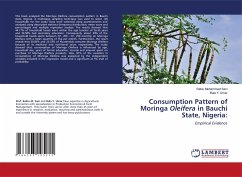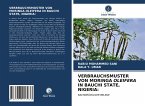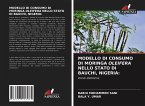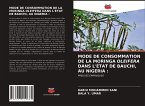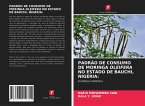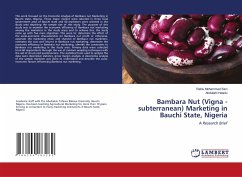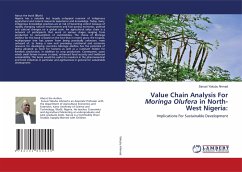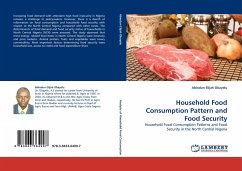This book analyzed the Moringa Oleifera consumption pattern in Bauchi state, Nigeria. A multistage sampling technique was used to select 120 households for the study. Data were collected using questionnaires and analyzed using descriptive statistics (frequency distribution, mean score and percentages) and multiple regression analysis. The results showed that 44.17% of household heads were within the age bracket of 26-35 years and 34.50% had secondary education. Consequenly, about 39% of the household heads spent between N1, 200 - N1, 250 monthly on Moringa Oleifera with a mean quantity of 7kg per month. Furthermore, the result reveals that 30.83% and 23.33% of households consume Moringa Oleifera because of its medicinal and nutritional value, respectively. The study showed that, consumption of Moringa Oleifera is influenced by age, household size, years of formal education, income and amount spent on purchase of Moringa Oleifera products. Also, 81% of the variation in consumptionof Moringa Oleifera was explained by the independent variables included in the regression model and is significant at 5% level of probability.
Bitte wählen Sie Ihr Anliegen aus.
Rechnungen
Retourenschein anfordern
Bestellstatus
Storno

